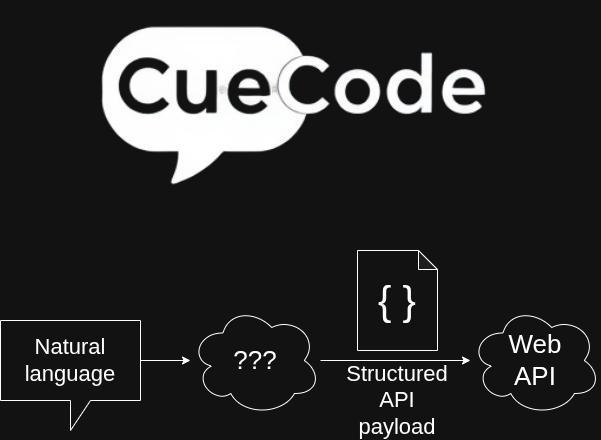
Project overview
CueCode is a developer-focused framework that translates natural language into executable REST API payloads using large language models (LLMs). The goal was to make it easier — and safer — for fullstack developers to integrate LLM-powered features into their apps, especially for systems with complex APIs. The timing of CueCode's development highlights Guidelight's lead architect's ability to foresee industry needs and build toward them, as evidenced by Anthropic's convergent development of tools in this problem space.
Project details
- Project type: Academic capstone
- Role: Lead developer and architect
- Project Start Date: Aug 24, 2024
- Project Completion Date: May 7, 2025
- Technologies: Python, OpenAPI, SpaCy, PostgreSQL, pgvector, sentence-transformers, OpenAI

